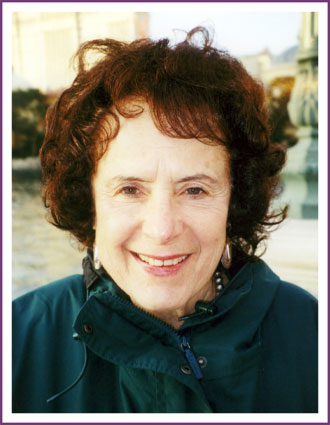BEATRICE ROSE, "Bea"

• Social Justice
Inducted: 2018
Deceased: 2007
BEATRICE ROSE, "Bea"
Beatrice “Bea” Rose was an educator, long-time Jewish leader in Anchorage, and community activist who worked persistently on social justice issues during her 50 years in Alaska. Advocating for the rights of the disenfranchised, Rose was a role model for many as she carried out the Jewish belief in “Tikkun Olam,” the responsibility to repair the world.
Rose moved to Alaska in 1957 after Alaska’s Territorial Congressional Delegate Bob Bartlett encouraged her and her husband, Nissel (Mike) Rose, to work on statehood. The young couple quickly threw themselves into causes they felt would strengthen a new, young state.
She helped create and sustain Anchorage’s first Jewish synagogue, Congregation Beth Sholom. As a founding member, Rose worked with others to create a vibrant Jewish educational and religious center in a state where Jews constituted an almost invisible minority.
Rose was a long-time leader in education circles, with particular emphasis on special education. Working as a speech therapist with the Anchorage School District for 25 years, Rose assisted students with disabilities, served on the first committee to initiate special education in Alaska, and become the NEA-Alaska Chairperson.
After their son was diagnosed with schizophrenia in 1977, Rose and her husband became unstoppable advocates for mental health. She joined the board of the Alaska Mental Health Association and participated in national mental health conferences. Rose worked to destigmatize mental illness and was instrumental in lobbying for the passage of the Alaska Mental Health Trust Settlement.
Rose was civic-minded, focused on advancing the rights of women and promoting progressive causes through the Alaska Democratic Party. She is remembered as a loving mother and grandmother, a committed friend, and a role model for many who appreciated her warmth, welcoming spirit, and kindness.
View Extended Bio